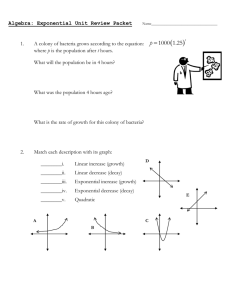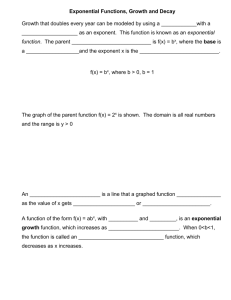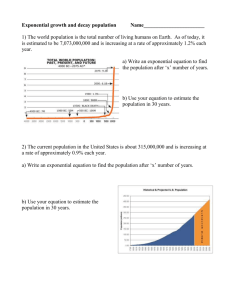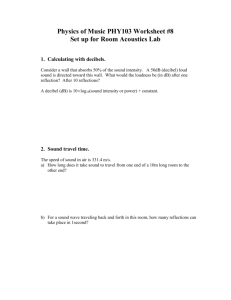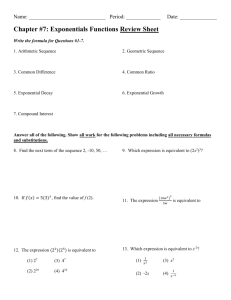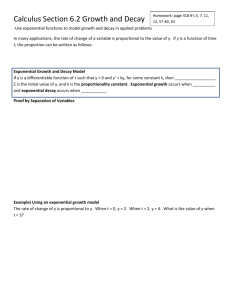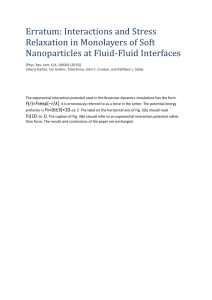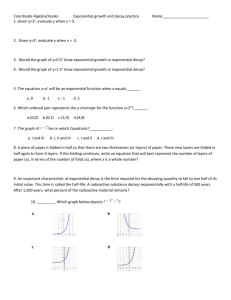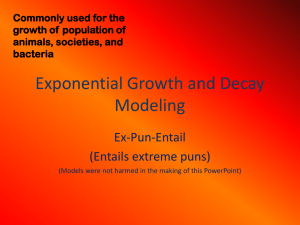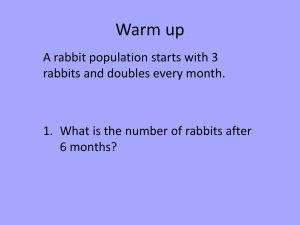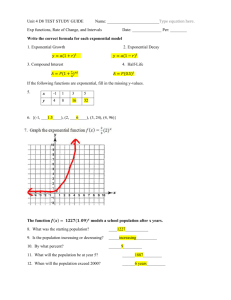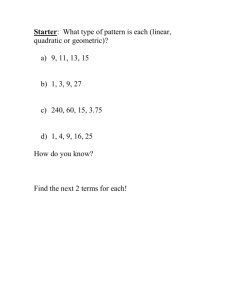3.2 Multiple choice questions
advertisement
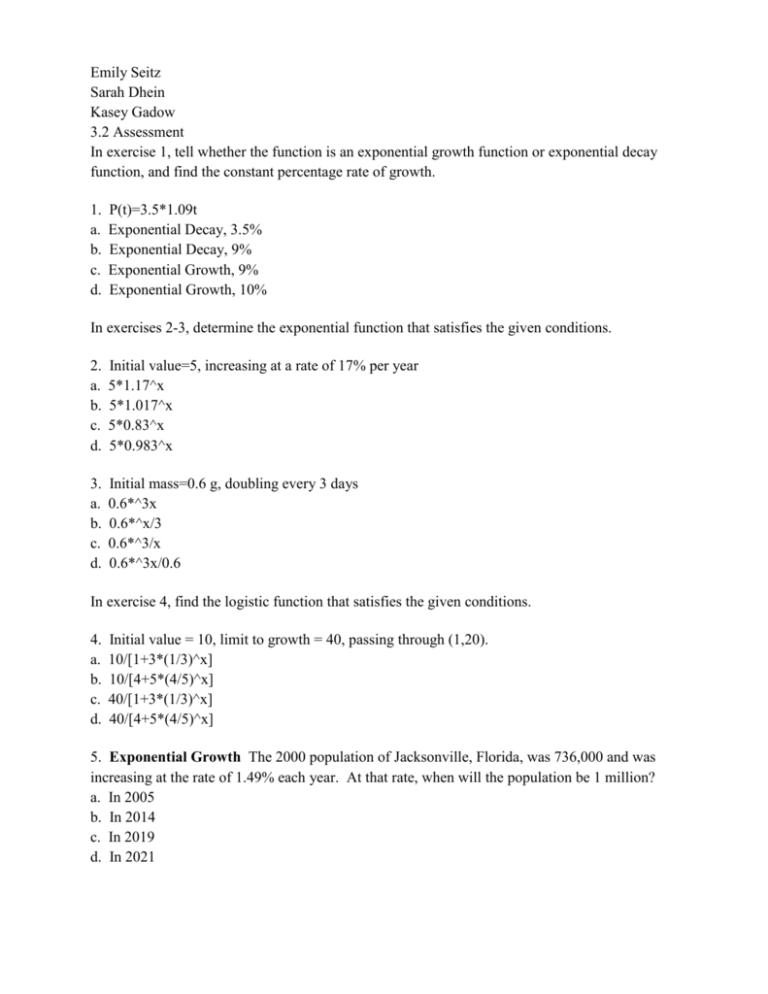
Emily Seitz Sarah Dhein Kasey Gadow 3.2 Assessment In exercise 1, tell whether the function is an exponential growth function or exponential decay function, and find the constant percentage rate of growth. 1. a. b. c. d. P(t)=3.5*1.09t Exponential Decay, 3.5% Exponential Decay, 9% Exponential Growth, 9% Exponential Growth, 10% In exercises 2-3, determine the exponential function that satisfies the given conditions. 2. a. b. c. d. Initial value=5, increasing at a rate of 17% per year 5*1.17^x 5*1.017^x 5*0.83^x 5*0.983^x 3. a. b. c. d. Initial mass=0.6 g, doubling every 3 days 0.6*^3x 0.6*^x/3 0.6*^3/x 0.6*^3x/0.6 In exercise 4, find the logistic function that satisfies the given conditions. 4. a. b. c. d. Initial value = 10, limit to growth = 40, passing through (1,20). 10/[1+3*(1/3)^x] 10/[4+5*(4/5)^x] 40/[1+3*(1/3)^x] 40/[4+5*(4/5)^x] 5. Exponential Growth The 2000 population of Jacksonville, Florida, was 736,000 and was increasing at the rate of 1.49% each year. At that rate, when will the population be 1 million? a. In 2005 b. In 2014 c. In 2019 d. In 2021 Emily Seitz Sarah Dhein Kasey Gadow 3.2 Assessment 6. Radioactive Decay The half-life of a certain radioactive substance is 14 days. There are 6.6 g present initially. (a) Express the amount of substance remaining as a function of time t. (b) When will there be less than 1 g remaining? a. (a) y= 6.6 (1/2)^14/t (b) After 18.19 days b. (a) y = 6.6 (1/2)^t/14 (b) After 38.11 days c. (a) y = 14 (1/2)^6.6/t (b) After 37.81 days d. (a) y = 14 (1/2)^t/6.6 (b) After 46.2 days 7. Bacteria Growth The number B of bacteria is a petri dish culture after t hours is given by B = 100e^0.693t When will the number of bacteria be 200? Estimate the doubling time of the bacteria. a. When t = 1; every hour b. When t = 1; every half hour c. When t = 2; every hour d. When t = 2; every half hour 8. True or False Exponential population growth is constrained with a maximum sustainable populations. a. True b. False 9. a. b. c. d. What is the constant percentage growth rate of P(t) = 1.23*1.049^t? 49% 23% 4.9% 2.3% 10. A single-cell amoeba doubles every 4 days. About how long will it take one amoeba to produce a population of 1000? a. 10 days b. 20 days c. 30 days d. 40 days Emily Seitz Sarah Dhein Kasey Gadow 3.2 Assessment Answer Sheet 1. C 2. D 3. B 4. C 5. D 6. B 7. A 8. B 9. C 10. D
